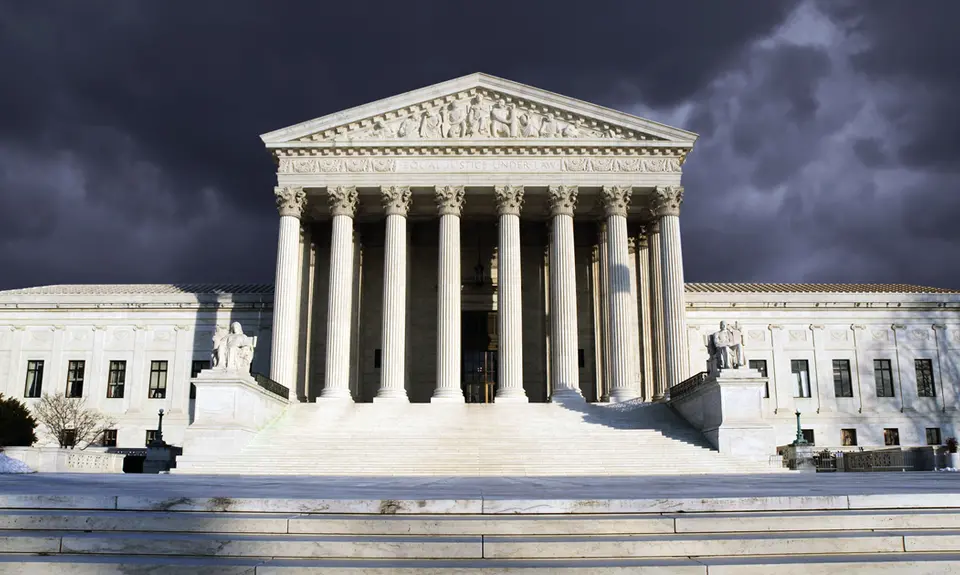As discussed elsewhere, Judge Amy Coney Barrett’s nomination to a lifetime seat on the Supreme Court threatens significant harm to Americans’ access to health care in the middle of the current pandemic. This nomination should not be advanced over the objections of a majority of the people at a time when Americans have already begun to vote on the next President.
In addition to the above, Barrett’s record is extreme and out of the mainstream, as demonstrated by the number of majority decisions she wrote or joined that were so extreme that other Republican-appointed judges on her court (nominated by Presidents Reagan, Bush or others dissented. For example:
Health care: Even before she became a judge, Barrett made troubling statements concerning health care, including criticizing Chief Justice Roberts’ ruling that the Affordable Care Act was constitutional. Although such high profile issues have not come before her as a judge, she demonstrated her insensitivity to the health care needs of ordinary people by dismissing a woman’s claim to recover health care-related expenses from the government in Chronis v. United States. Judge Ilana Rovner, who was nominated by Republican George H.W. Bush, strongly dissented. She pointed out that Barrett’s view that Anna Chronis had not made a proper demand for compensation before she filed suit “defies credulity.”
Workers’ Rights and Job Discrimination: Barrett cast a very harmful vote in Kleber v. CareFusion Corp., where she helped decide that job applicants are not legally protected when a company’s hiring practices have a discriminatory impact on older workers. This meant that an experienced worker could not claim that it was illegal for a corporation to require that applicants have “no more than 7 years” of experience. The dissenters included conservative Reagan nominee Frank Easterbrook, who pointed out that the relevant language in the federal law banning age discrimination in employment was “identical” to the language in other anti-discrimination laws under which applicants can bring such discriminatory impact lawsuits. As another dissenting judge pointed out, the decision that Barrett joined will harm older workers and is effectively “closing its eyes to fifty years of history, context, and application.”
Consumer rights: Barrett ruled in favor of corporate special interests and against consumers in her opinion in Casillas v. Madison Ave. Associates Inc., where she held that a woman did not have standing to enforce a violation of the Fair Debt Collection Practice Act. Three judges, including Judge Rovner, dissented from the refusal of the full court to rehear the case, even though Barrett’s ruling directly contradicted the decision of another federal court of appeals. As the dissent pointed out, Barrett’s decision will make it “much more difficult” for consumers to enforce the Act’s protections against abusive debt collection practices.
In another decision harmful to consumers, Barrett joined a refusal to reconsider a ruling that the Federal Trade Commission cannot seek restitution for victims of consumer fraud, resulting in vacating a $5 million judgment in favor of consumers in FTC v. Credit Bureau Center. A number of judges including Judge Rovner strongly dissented, pointing out that the decision contradicted the decisions of eight other federal appeals courts, which have held that it is proper for the FTC to seek such restitution order to refund to consumers a corporation’s “ill-gotten gains.”
Immigration: Barrett wrote a divided opinion in Yafai v. Pompeo, in which she upheld the denial of a visa to the wife of a U.S. citizen even though the consular official had no evidence to back up his denial. In fact, his claim that the woman had improperly attempted to smuggle children into the United States was squarely contradicted by evidence submitted by the couple. Barrett maintained it did not matter because consular officials have unreviewable discretion to deny a visa. Reagan Judge Kenneth Ripple strongly dissented, explaining that the court had previously required at least some evidence to support such decisions, and that Barrett’s ruling “deprives Mr. Yafai of an important constitutional right.”
All of these and other cases where Barrett was more extreme than other Republican judges, including both majority and dissenting opinions, can be found in PFAW’s report on Barrett. These votes and opinions by Barrett reinforce the conclusion that her nomination should be rejected because of the improper efforts by Trump and Senate Republicans to push it through before the election and because she so clearly passes Trump’s anti- ACA and anti-Roe litmus tests.
